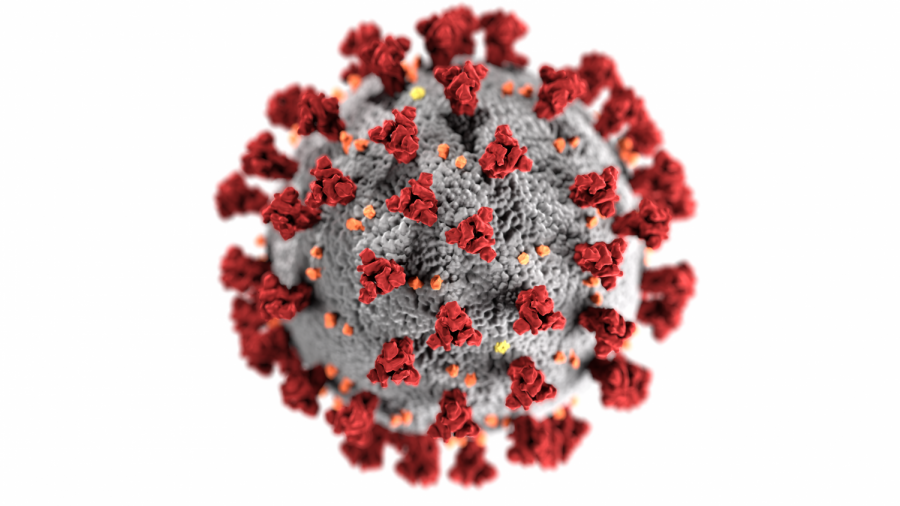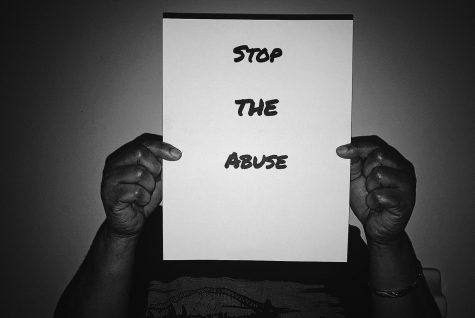The Coronavirus: A Look at the Pandemic That Has Caught the World by Storm
March 22, 2020
In 2003, an epidemic of a virus called Severe Acute Respiratory Syndrome, better known as SARS, broke out in China. SARS infected roughly around 8,000 people and killed about 774. In 2012, a virus called Middle East Respiratory Syndrome, better known as MERS, broke out from the Arabian Peninsula. MERS infected 2,442 people and killed 842. Both of these epidemics shocked the world, and both of these viruses were from the past, so why talk about them now? Well, it is because a new virus has emerged, that is very similar to these two, and is arguably worse.
Both MERS and SARS belong to a large family of viruses called the Coronaviruses. These viruses are relatively common and many of them are not too severe. However, there are threatening ones such as MERS and SARS which are extremely severe. In January 2020, it was announced that a new extreme strain of Coronavirus broke out from China. This new strain of Coronavirus has been named COVID-19 by the World Health Organization (WHO). This Coronavirus is similar to SARS and MERS but is different due to its rapid spread. As of the writing of this article, there have been more than 300,000 cases resulting in thousands of deaths, with confirmed cases in over 150 countries.
It is worth mentioning that many victims of COVID-19 have made full recoveries.However, with that being said ,it is also important to note that the severity of COVID-19 should not be minimized. It has been declared a pandemic and is reportedly worse than the H1N1 pandemic. While younger individuals have been shown to suffer less intensely from the illness,, they are not invincible to it. Even if younger people will most likely recover, they can still expose people to COVID-19, due to the virus’s long incubation period. This virus is dangerous and can spread rapidly. If all hospital beds are occupied, then governments and doctors will need to make difficult decisions on who will receive treatment, and who will not. People who say that this virus is just the flu are very wrong and are only doing a disservice by spreading misinformation. While it is important to not panic, minimizing this virus is just as bad, if not worse. Many countries are not equipped with the proper amount of testing kits, and while there are roughly 300,000 total confirmed cases, that number has the potential to change at any moment. .The COVID-19 pandemic has had a devastating impact on China, specifically Hubei Province, where some speculate the virus originated. In addition, Italy has been going through the wire,with thousands of deaths being reported.
Many countries have reacted in different ways to prevent the spread of COVID-19. Armenia has cut off all ties with Iran for two weeks due to a clause in its constitution when it comes to dealing with epidemics. The COVID-19 spike appeared under uncertain circumstances in Iran, but for the large part, Iran has had trouble containing the virus, with it being suggested that the Iranian government was covering up the true amount of cases and deaths within the country. Neighboring countries (Afghanistan, Iraq, Kuwait) have reported their first cases reportedly due to Iranian travelers spreading the virus, prompting them to shut down their borders to Iranian citizens. Italy is experiencing one of the greatest surges of COVID-19 in the world, and the greatest outside of Asia. Like Iran, Italy has taken extreme measures to limit and contain the spread of the virus, but their measures are even more intense than those in Iran. The entire country is on lockdown. The only reason one can leave their house is for food, medicinal reasons, or work (but for the latter, permission from the government is needed). Italians also cannot travel regionally. Flights to and from China have been banned by Italy. Academic, religious and social events have all been canceled across the regions of Emilia-Romagna, Lombardy, and Veneto. Italy even canceled this year’s Carnivale, which is a significant cultural tradition for Venice and all of Italy. This pandemic caused Schengen to be suspended as well. Most countries have been recalling their nationals who have been living in China.
The media has been doing its fair share of fear mongering with regards to COVID-19. This heightened hysteria has led to people taking drastic measures and fighting for resources such as toilet paper, food , and cleaning products. However, in many countries , supplies are still available.Ukraine is a good example of the mass hysteria an illness can provoke. There were zero confirmed cases of COVID-19 within Ukraine when the reaction happened, but the nation did recall its nationals and took many Wuhan evacuees into quarantine in the central region. Many Ukrainians did not react pleasantly to this, with a hoax email setting them over the edge. An email claiming to be from Ukraine’s Ministry of Health said that COVID-19 had entered the country. Although the Ukrainian government confirmed that this email was a hoax sent from outside the country, many Ukrainians believed the email and felt threatened because it was sent the same day the evacuees landed. As a response, they protested. These protests turned into violent standoffs with the police. The protesters blocked roads leading to medical facilities, burned down barricades, and when buses containing the evacuees came, they attacked them, smashing their windows. The evacuees are to be quarantined for two weeks, and Ukraine is currently trying to find the source of the email.
The United States is also evacuating their nationals. Reportedly, the U.S. has thousands of cases of COVID-19. Cruise Ships have become a hotspot for COVID-19 breakouts. One outbreak occurred on the Diamond Princess, causing many Americans to need to be evacuated. Cruise Ships are not well equipped to deal with disease outbreaks, and the Diamond Princess was no exception. When it was reported that some of the passengers had tested positive for COVID-19, a quarantine was attempted on the ship. Due to cruise ships not being equipped to deal with a quarantine, the people were not able to practice proper hygiene.
Some countries even took action before they had any confirmed cases. For example, Mongolia has shut down its schools, banned flights to South Korea, cancelled traditional Lunar New Year celebrations, and closed its border with China. Despite not having any cases, Mongolia is taking the virus threat just as seriously. Even countries that don’t typically react to international issues are taking action against the COVID-19 epidemic. Turkmenistan is a repressive dictatorship in Central Asia. They often fail to inform their citizens on numerous events, with reportedly only about 1 percent of the country having internet access. The COVID-19 is no exception to this, with many Turken being kept in the dark. However, the Turkmen government is actually being somewhat active in their response to the outbreak. While it is the most basic response, the Turkmen government is recalling nationals from China. While the reactions are the bare minimum, even repressive regimes are doing something about the outbreak. North Korea is also responding to the epidemic, by detaining foreigners (although this is nothing new in North Korea).
Furthermore, the COVID-19 epidemic has been negatively impacting the global economy. The global economy taking a hit is nothing new when it comes to disease outbreaks. It happened with the H1N1 pandemic along with the SARS and MERS epidemic. Almost every infectious disease outbreak causes a hit to the economy, but the impact on the global economy caused by COVID-19 is expected to be significantly worse than the damage caused by these epidemics. Business hubs like Singapore, Hong Kong, and Macau are on lockdown. While the global economy should be able to recover, it will still take a hit regardless.
As a result of this craze, many people have blamed a specific location or place.It is highly important to note that an illness is NOT synonymous with a culture. COVID-19 has affected countries around the globe,from one hemisphere to another. In times like this , ignorance is not the key, cooperation is. Rather than placing fault on others ,we need to be working together to help those who are the most vulnerable during this time, whether that be through prayer,delivering supplies, being conscious that everyone is in need of resources, or social distancing for the safety of others.
As a whole, world governments are scrambling to contain COVID-19. Many experts say that COVID-19 has already reached the requirements to be what is classified as a pandemic, but the WHO is hesitant to classify it as one. More details are expected to emerge on the COVID-19, with new information being brought to light everyday. On the positive side, world governments are working together to find a cure or treatment and people have recovered from the virus, with the fatality rate being very low.
*It should be mentioned that this information is highly subject to change , as no one can predict the route of this virus. Furthermore, all information is based off reports from credible organizations. As we are not in many of these nations and are not part of their governments, our findings are based on reported information.










